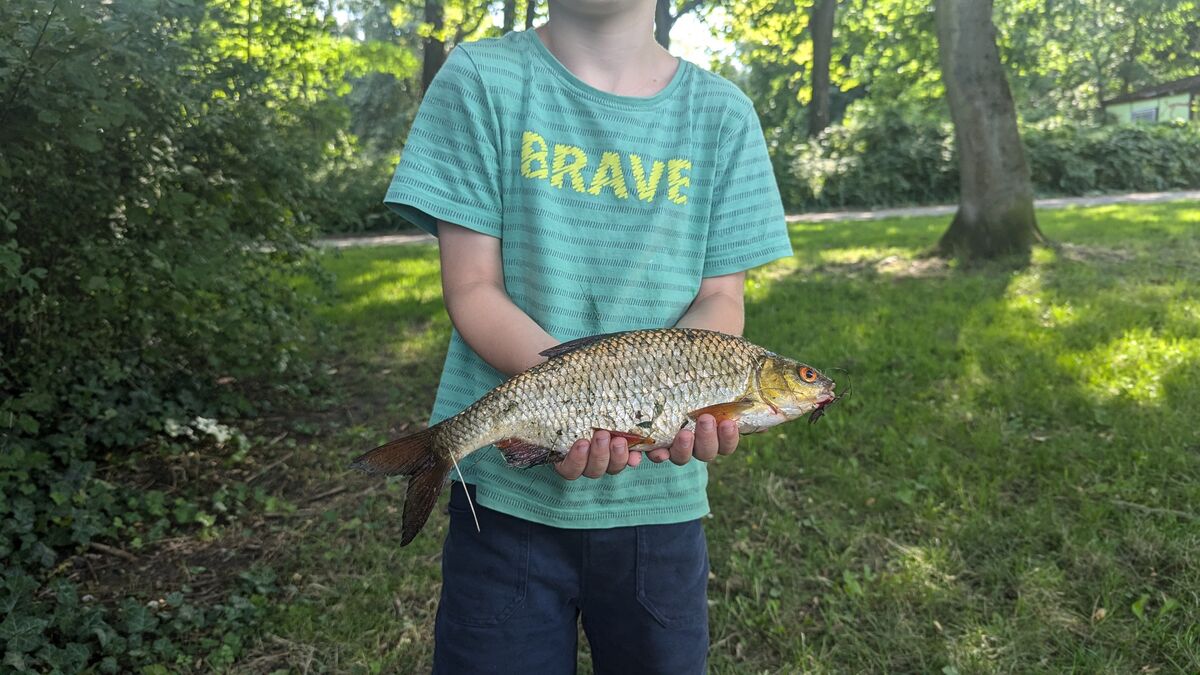
Catch n' Cook for beginners: This is how you turn your kids into little fishing heroes
👉 The key facts from this guide
- Catch n' Cook provides children with a practical learning experience about the origin of their food and promotes respectful interaction with nature.
- While fishing, children learn various techniques such as float fishing, bottom fishing, and spinning, which enhance their motor skills, patience, and concentration.
- The equipment for fishing is simple: fishing rod, reel, fishing line, hooks, floats, and bait. This allows children to engage playfully and safely in practice.
- Safety while fishing is essential: life jackets on boats, careful handling of fishing hooks, and knowledge about the surroundings are important.
- In addition to fishing, a variety of complementary activities, such as fishing knot exercises or fishing diaries, ensure that boredom does not set in.
- Through environmentally conscious fishing, such as closed seasons and releasing small fish, children learn responsibility for nature and sustainable resource management.
Have you ever thought about teaching your children where their food really comes from? Not from the supermarket, but directly from nature?
The first time fishing with my children, their eyes lit up when the fish was on the hook.
They were fascinated by the idea of catching their own food. When we had a roach on land, they were overjoyed and didn't want to put the fishing rod down anymore.
But how do you best get started? What equipment do you need? And how do you teach your children to treat nature with respect?
So, are you ready for an adventure that your children will never forget? Then let's cast the fishing rod together and discover what nature has to offer!
An Unforgettable Day at the Lake: How My Sons Became Anglers
The midday sun glittered on the lake as I pulled a rudd out of the water.
"Wow, Dad!", my sons, 7 and 9 years old, exclaimed with shining eyes. "Can we too?"
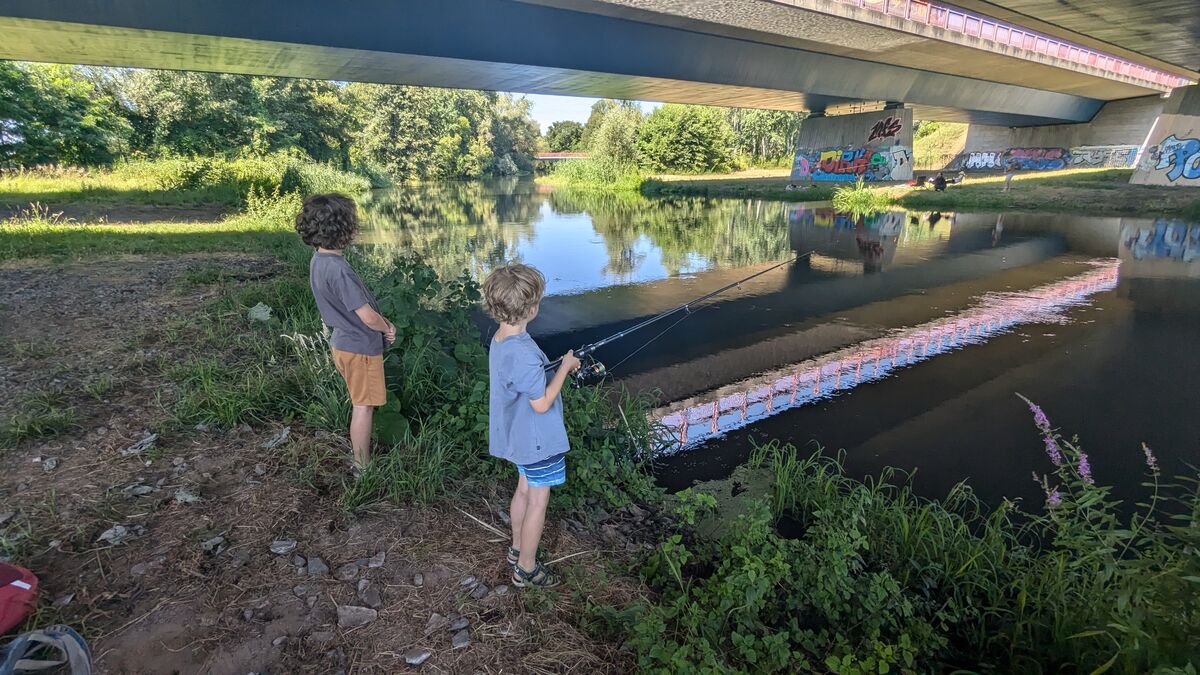
Of course, they can! With the patience of a Zen master (or at least something like that), I will show them how to hold and cast the fishing rod. It's like learning to ride a bike - only wetter.
After a few attempts - and yes, a few snags in the bushes - my eldest suddenly feels a tug on the line. You should have seen his face! Concentrated, like a chess grandmaster, he reels in a silver fish.
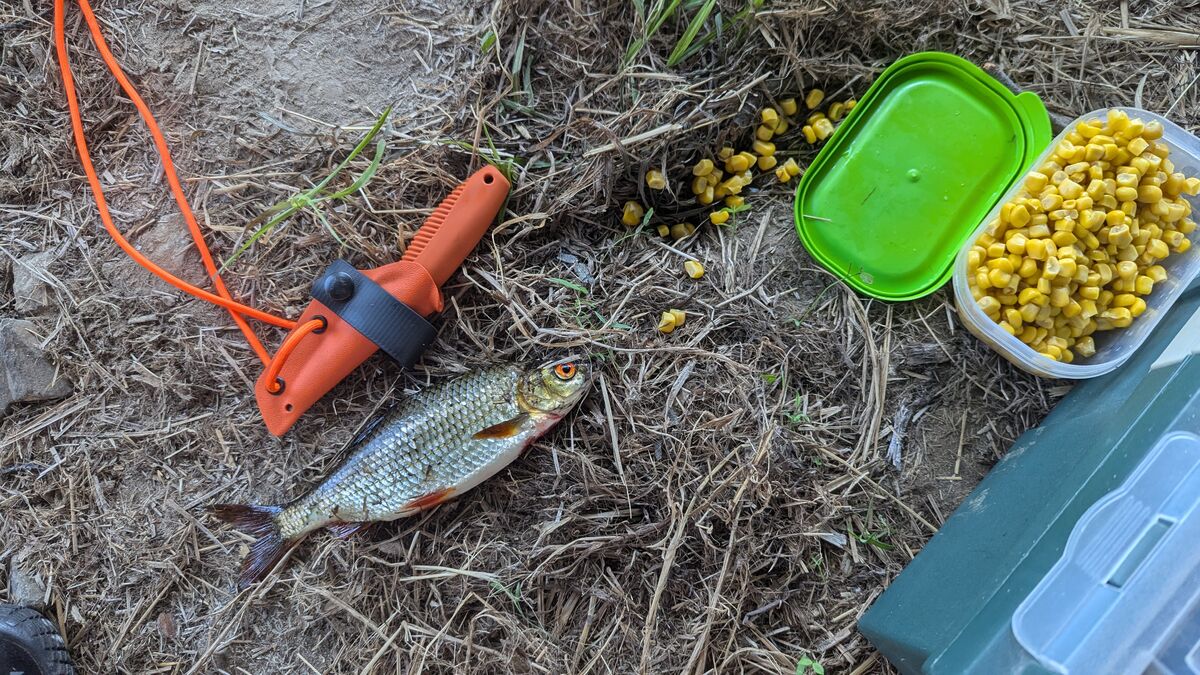
"I got one!", he cheers, as if he can hardly believe it himself. His little brother, curious as always, asks: "And now?"
I grin and say:
"Now it's getting really exciting. We'll make it our lunch!"
On the shore, we transform into a kitchen commando. Together, we prepare the fish, and while eating, the unbelievable happens: My otherwise picky nine-year-old beams and declares, "Dad, this is the best fish ever!"
At this moment, I realize: This day has taught them more than just fishing. It was a lesson about nature, food, and the adventure of experiencing things together.
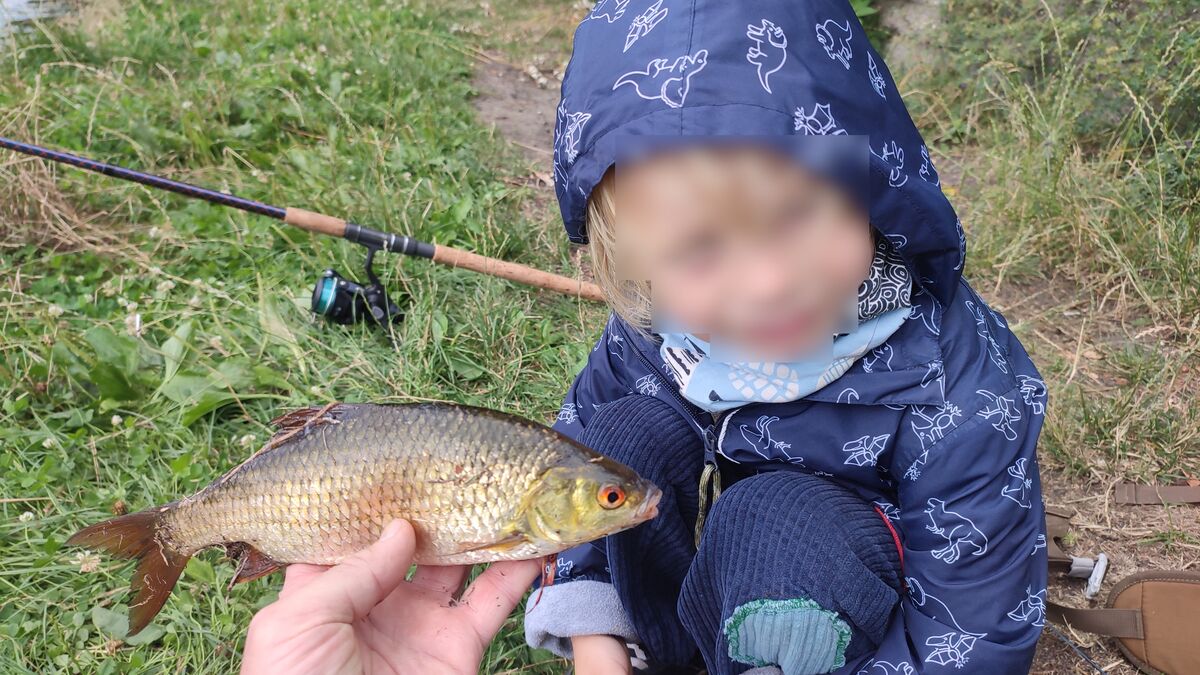
As we pack up, the question I've secretly been hoping for comes: "Can we do this again soon?"
I nod happily. "Definitely, guys. This was just the beginning of our fishing adventures!"
It's like a scavenger hunt and a cooking class in one, only much more exciting. You and your children not only catch fish, but you also learn how to prepare them. And the best part? You do it all in the middle of nature!
Imagine you are camping with your children. Instead of just saying "Here, eat your sausage," you could say:
"Hey, we need something to eat on the plate tonight. Let's get some food and go fishing!"
Suddenly, your children are not just eaters, but providers. Good, right?
Doesn't that sound like a recipe to turn your kids into real nature heroes?
How you should proceed pedagogically - for aspiring fishing Padawans
Hey you, Jedi Master of Fishing! Ready to initiate your little Padawans into the way of fishing? Here comes your Survival Guide for Patient Parents:
-
Be the Motivator: Show more enthusiasm than a football commentator at the finals! Your good mood is more contagious than a laughter virus.
-
Recognition and Praise: Your kids cast the line into the water instead of the bushes? Standing Ovation! Every small progress deserves an Oscar.
-
Patience is your Superhero Cape: Rome wasn't fished in a day either. Explain each step as patiently as if you were teaching a goldfish the ABCs.
-
Respect for Nature: Show your kids that nature is not a playground, but our home. Kind of like the living room, just without Wi-Fi and with more mosquitoes.
-
Sustainability for Beginners: Explain why we only catch as much as we can eat. Fish are not Pokémon - you don't have to catch them all!
-
No Pressure, Just Fun: Not every child wants to scale a fish right away. No problem! Show them and then ask: "Who wants to be the next fish hairdresser?"
Remember: You are not interested in professional anglers, but in little nature explorers. So, turn on relaxation and switch on fun!
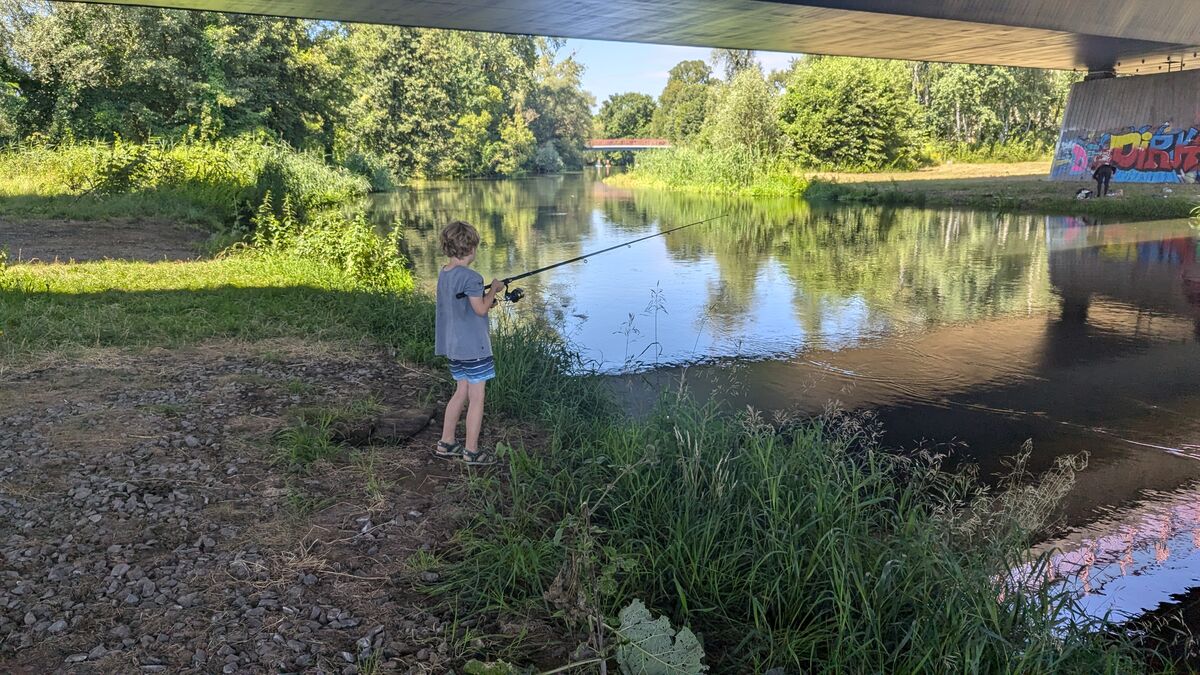
Fishing Methods: Float, Bottom, Spinning - Something for Every Child
When fishing for fish, there are a few things to keep in mind. I want to introduce you to the most important basics. This way, you and your children can fish successfully.
I started fishing with a float with my children. Roach, rudd, bream, and small carp are great for beginners. They can be found in many waters and often bite well.
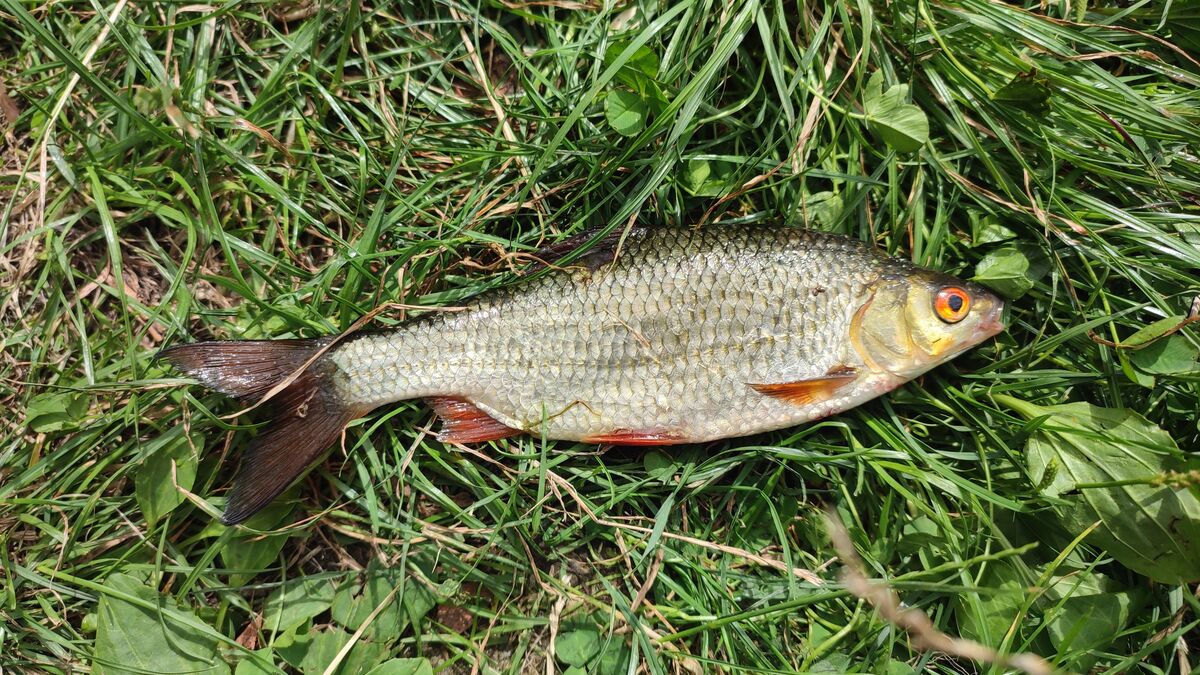
Predatory fish could also be an option for you, such as perch, which can actually be found in almost every body of water. Typically, you can even catch as many as you want, as they are not popular with many water body owners.
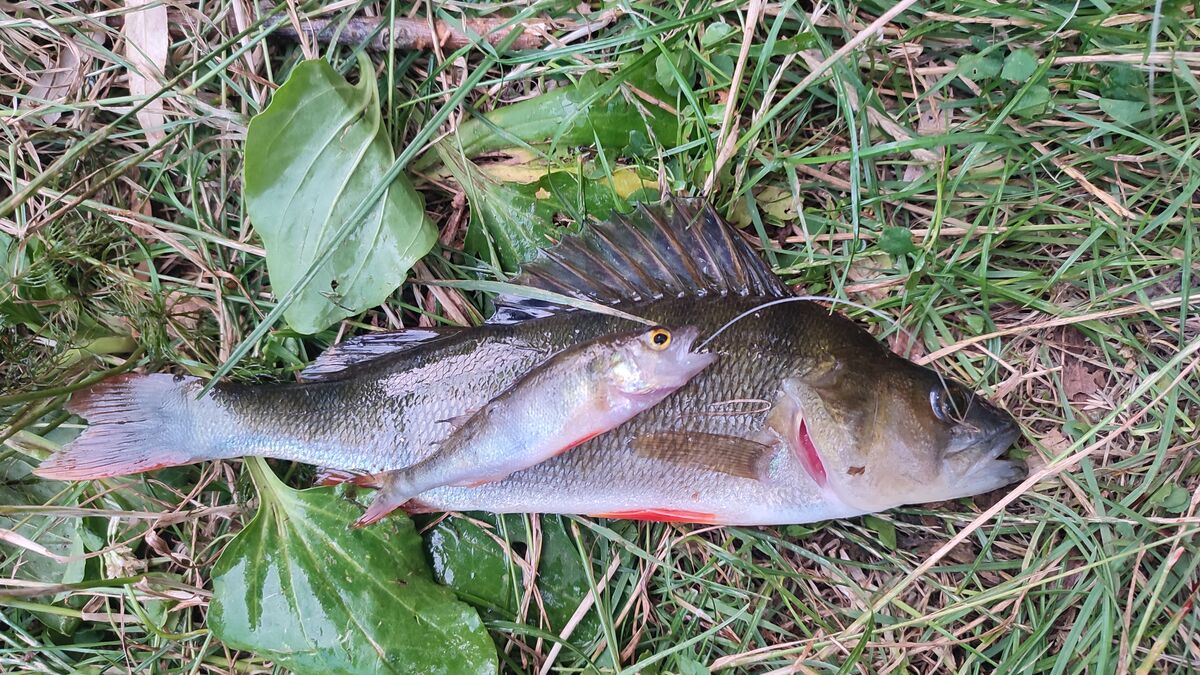
Or you can fish for gobies with bottom lead, which are also not popular. They are small, but they taste fantastic. I gut them, roll them completely in flour, and fry them in hot oil. Then I eat them like sprats - completely, but without the head.
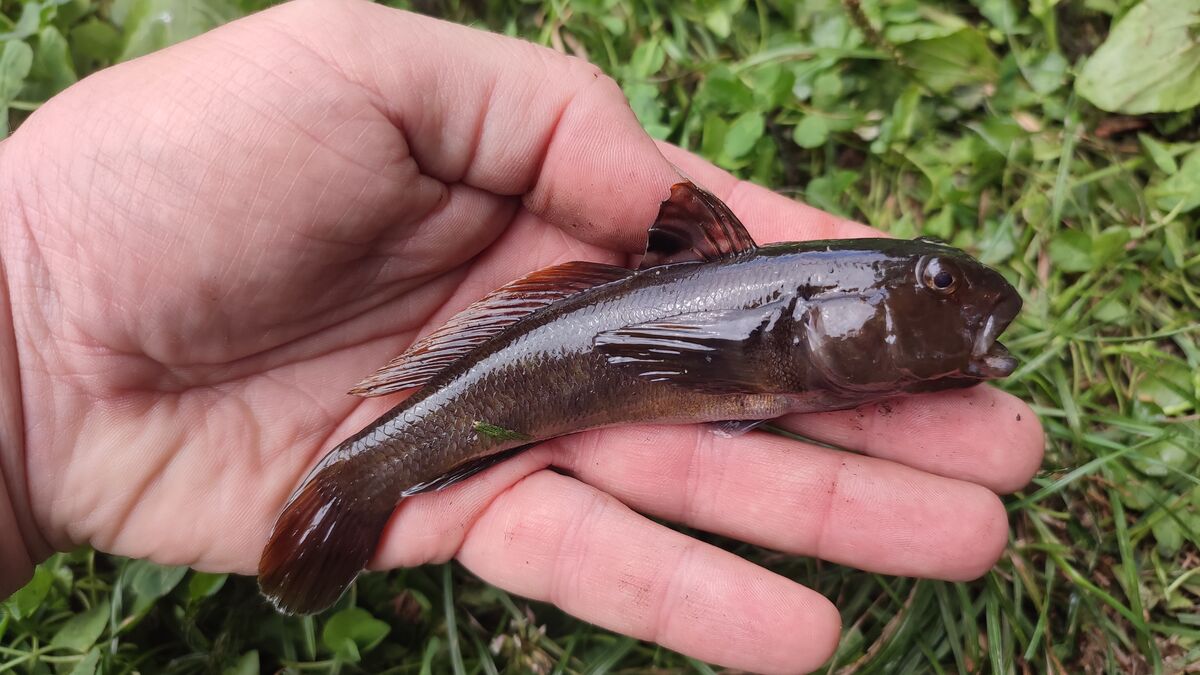
FLOAT, BOTTOM, SPINNING, Fly
Float fishing: The classic among fishing methods!
- As easy as riding a bike (just without the bruises)
- Exciting like a thriller - will the float submerge?
- Perfect for children from 5 years old (and impatient adults)
As an old hand in the outdoor field, I have a weakness for float fishing with children. This method is like a tailor-made suit for beginners - simple and functional at the same time. The dancing float on the water holds the children's attention longer than my last diet.
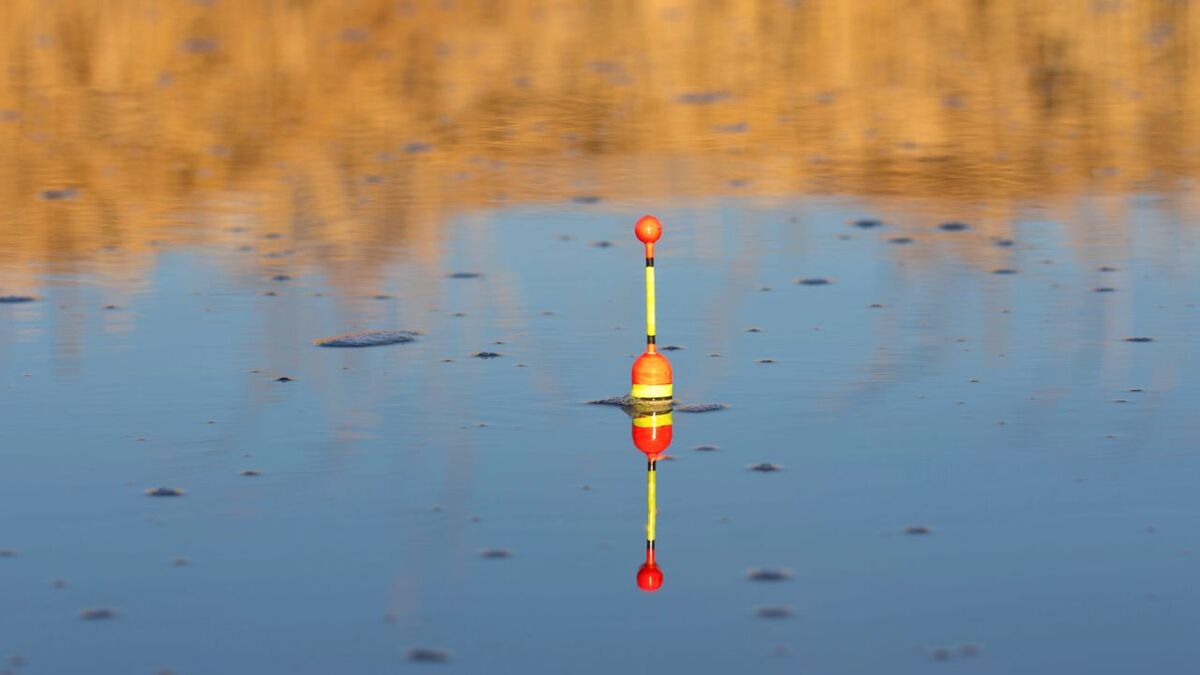
Bottom fishing: For the little philosophers among us!
- Ideal for children who want to appear "grown-up"
- Perfect for larger fish (and greater patience)
- Recommended for ages 8 and up
The basic fishing method is the all-rounder among the three - so to speak, the Swiss Army knife of fishing techniques. Less action, but more chance of the big catch. Perfect for children who want to appear "grown-up".
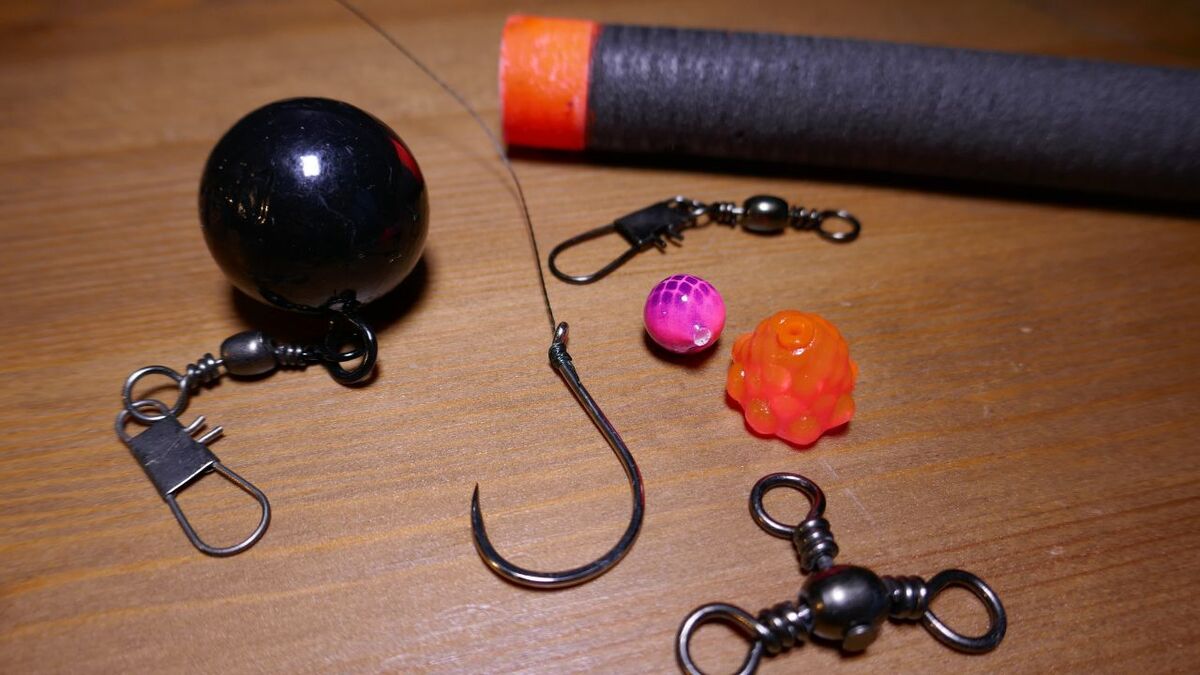
Spinning: For the energy bundles in your family!
- Active like a Zumba class (just with less sweating)
- Requires more skill (and less patience)
- Ideal for children from 10 years old (or with caffeine in their blood)
Spin fishing is the high-tech enthusiast among the methods. Constantly on the move and with the chance of catching predatory fish - perfect for those who like to follow the latest trend and need some action.
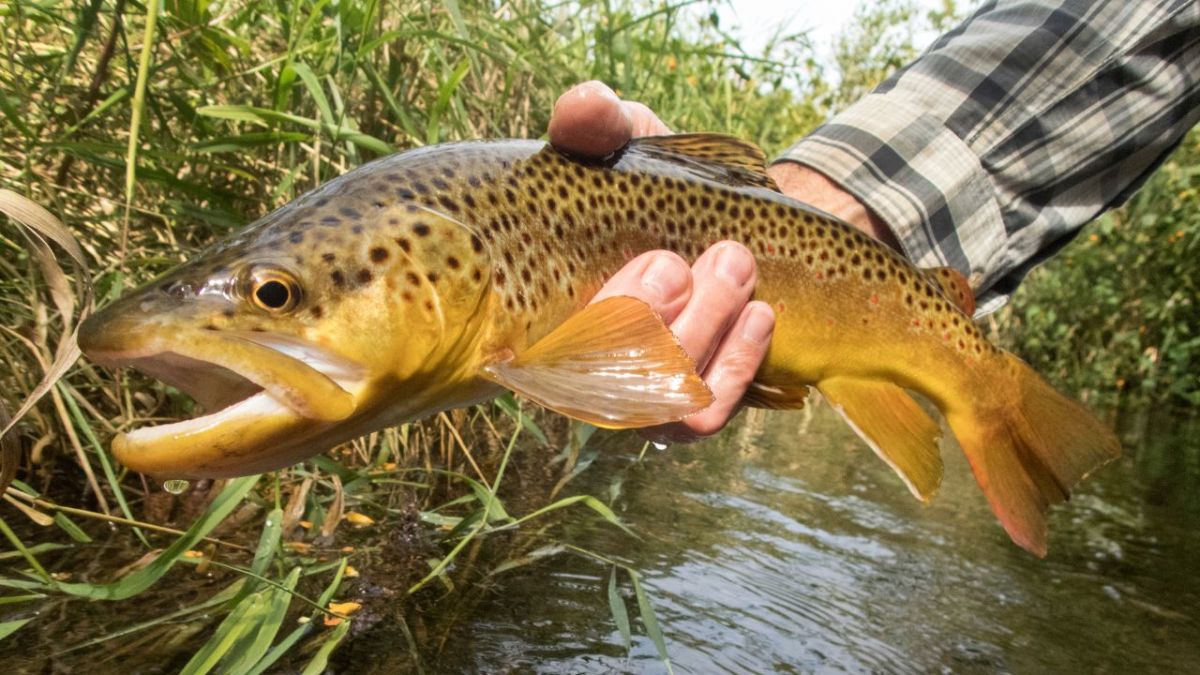
Fly Fishing: For nature enthusiasts and precision lovers!
- Elegant technique that requires practice and patience
- Ideal for clear, shallow waters and shy fish like trout
- Suitable for children aged 12 and up (with a preference for nature and precision)
Fly-fishing is an art in itself, and I haven't tried it yet. Here in Brandenburg, I simply don't have the right waters or any trout.
This method requires a special casting technique and a good sense of observation to place the fly on the water surface. Perfect for older children who have a steady hand and a passion for nature.
The connection to the environment and the challenge of outsmarting the fish with an artificial fly make fly-fishing an unforgettable experience.
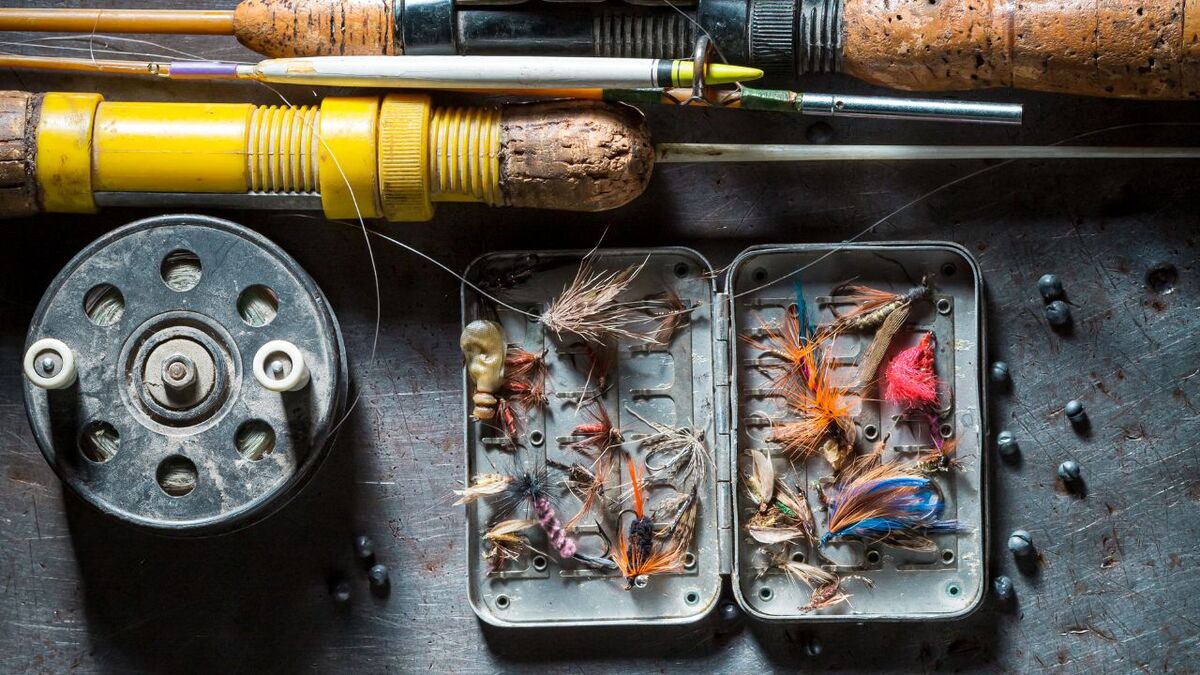
Each of these methods has its strengths and weaknesses. Float fishing is my favorite for leisurely family outings, bottom fishing is my faithful companion with patient children, spinning comes into play when the children want to be particularly active. And we will tackle fly-fishing as soon as we are at the right waters.
Which method is the best? It's like ice cream flavors - everyone has their favorite! My tip? Try them all! It's like a fishing buffet: take what you like!
The Fishing Gear: Your Survival Kit for Fishing
Basic equipment includes:
- Fishing rod
- Reel
- Fishing line
- Hooks
- Floats
- Bait (e.g. maggots, corn, bread, dough, worms)
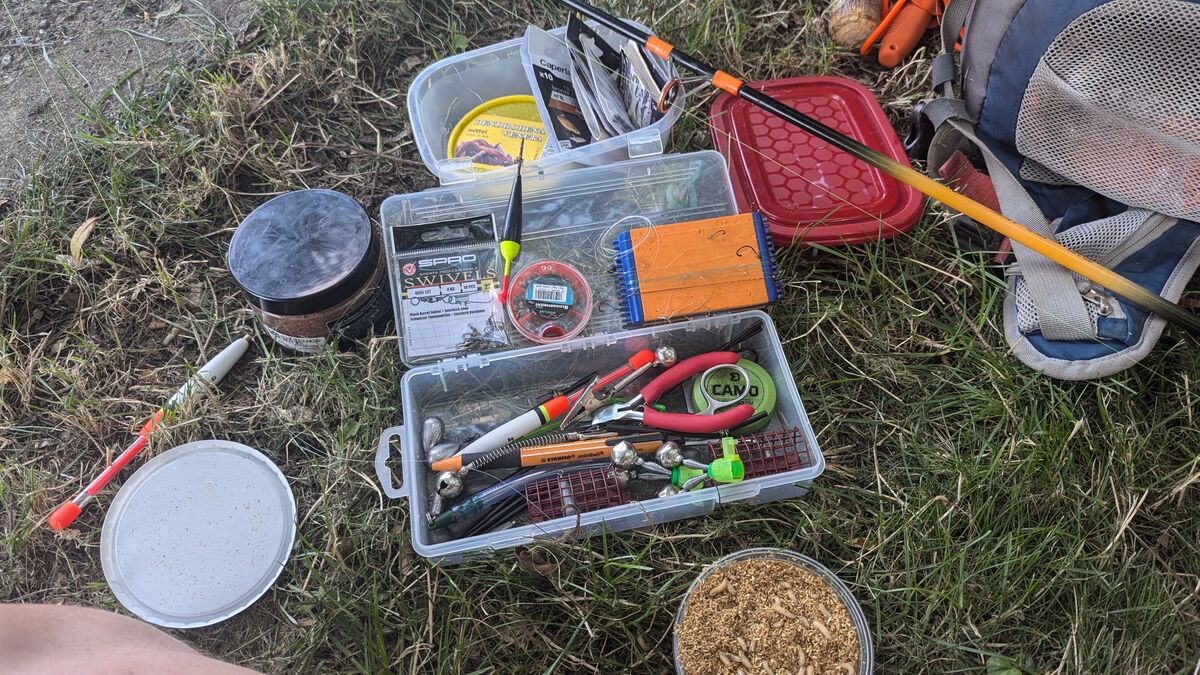
The Fishing Rod: A Magic Wand for Little Fishermen
- Easy to handle
- Sturdy enough for small hands
- Perfect for first fishing successes
- Light in weight
The float adds extra excitement and visibility to fishing
It is ideal for children's concentration ability and provides an exciting moment when it is suddenly pulled underwater.
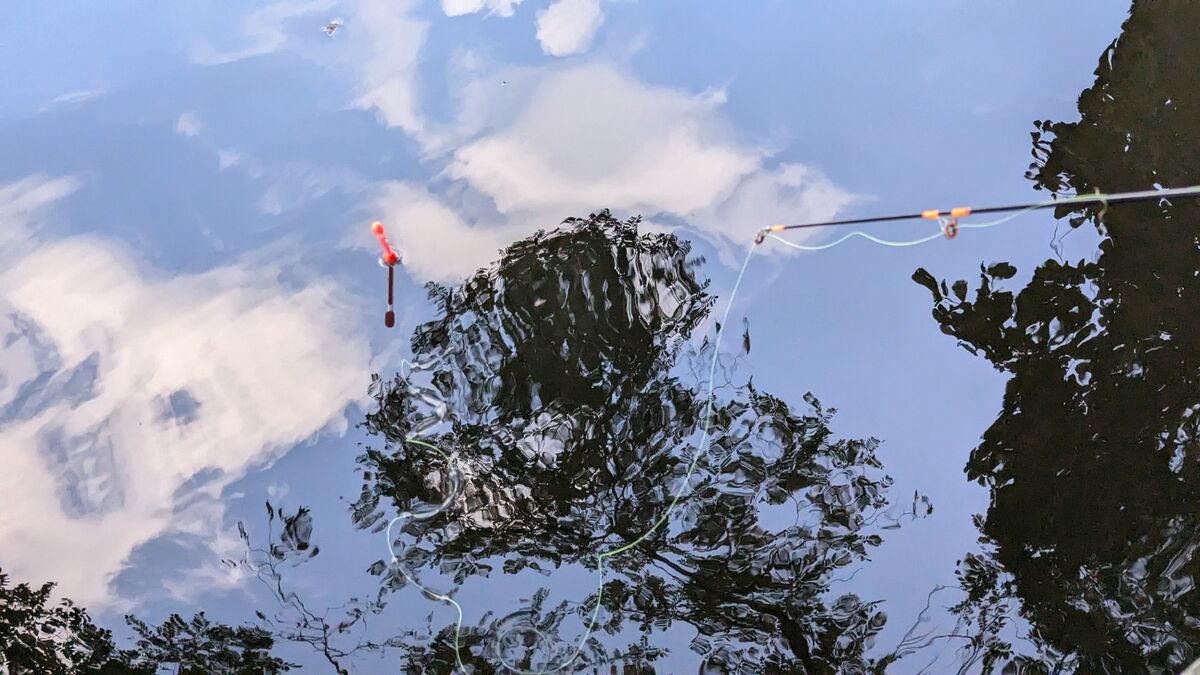
Tip: Children can be impatient. I always have some snacks with me and I advise you to do the same. A hungry child is as unpredictable as a shark in a goldfish bowl!
The Bait: Surprisingly Fascinating
The baits pleasantly surprised me:
- Variety: From worms to maggots to bread balls - something for every taste
- Learning effect: Children understand what fish eat
- Overcoming: Some overcome their fear of creepy crawlies
At first, I was skeptical whether my children would touch the worms - I'm more of the "let dad do it" type. But after a few minutes of intense watching, they boldly reached out.
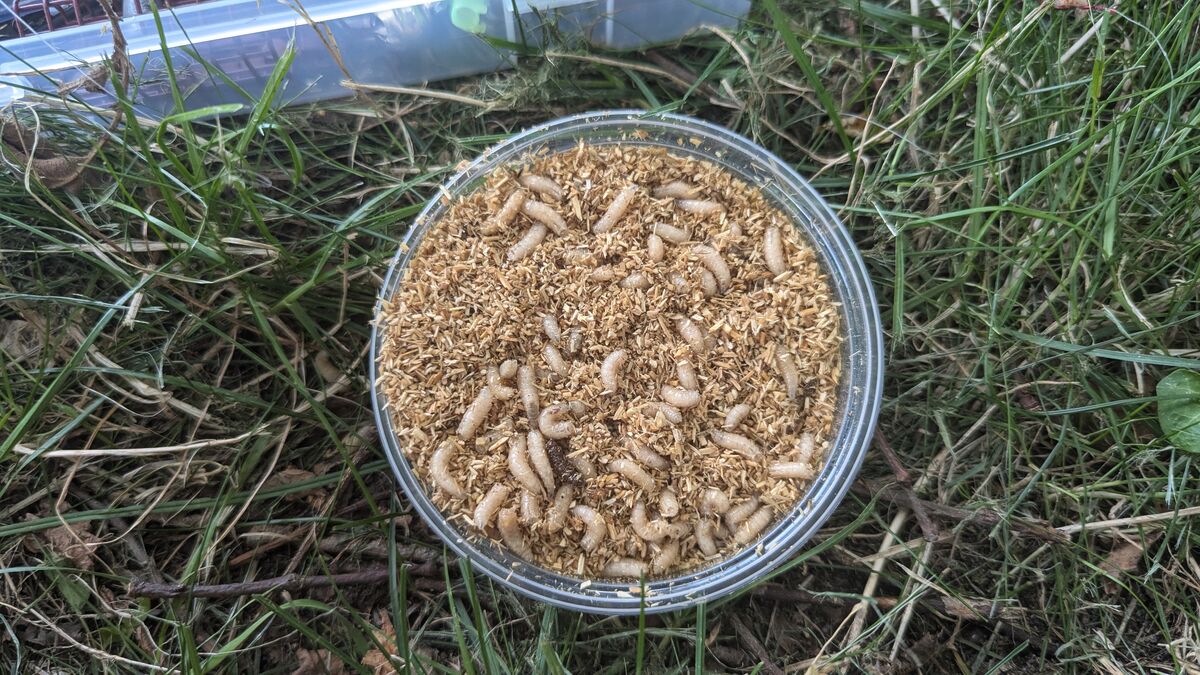
What fascinates me the most is the unique blend of disgust and fascination on the children's faces. They are neither repulsed nor thrilled, but have this perfect mix of "Eww!" and "Cool!".
The Bureaucratic Jungle (in Germany)
What you need as an adult
Fact is: Without a fishing license and a water map, you are almost nowhere allowed to fish as an adult. Sure, there are exceptions - like special fishing ponds - but they are rare and often also boring.
Here is the overview:
What is the fishing license?
The fishing license is an official permit that allows you to fish in public waters. To obtain the fishing license, you usually need to attend a preparatory course and pass an exam.
The course imparts knowledge about fish species, fishing techniques, animal protection, and legal regulations. The exam consists of a theoretical part and sometimes also a practical part, where you have to demonstrate your skills in handling fishing equipment.
What is a fishing permit?
The fishing permit is a special authorization that allows you to fish in a specific body of water. It is issued by the respective fishing rights holders or fishing clubs and is often time-limited, for example, to a day, a week, or a year.
The fishing permit often contains specific regulations and restrictions, such as catch limits, closed seasons, and permitted fishing methods. Without this permit, you are not allowed to fish legally in the corresponding body of water.
What your child is allowed to do and what is forbidden
In Germany, children under 14 often do not need a fishing license and can act as helpers . This means that they are allowed to hold the rod or pull out the fish. However, these rules usually apply to helpers:
- Children without their own fishing license are not allowed to stun and kill fish (for animal welfare reasons)
- Children without their own fishing license are only allowed to fish for non-predatory fish (not for predatory fish)
My tip: Inform yourself about the rules in your region and state before fishing.
Here is an overview:
| State | Minimum age for youth fishing license | Validity until | Supervision required | Special features |
|---|---|---|---|---|
| Baden-Württemberg | 10 years | 16 years | Yes, adult fishing license holder | Exam possible from 10 years |
| Bavaria | 10 years | 18 years | Yes, adult fishing license holder | Exam possible from 12 years |
| Berlin | 12 years | 18 years | Yes, fishing license holder (proof required) | Only coarse fishing, club membership required |
| Brandenburg | 8 years | 18 years | No | Only coarse fishing, no exam required |
| Bremen | No youth fishing license | 14 years | Yes, adult fishing license holder | From 14 years exam and regular license required |
| Hamburg | No youth fishing license | 12 years | Yes, adult fishing license holder | From 12 years exam required |
| Hesse | 10 years | 16 years | Yes, adult fishing license holder | From 14 years exam for regular license possible |
| Mecklenburg-Vorpommern | No youth fishing license | 14 years | Yes, fishing license holder (not adult) | From 10 years exam possible |
| Lower Saxony | No youth fishing license | 14 years | Yes, fishing license holder | From 14 years exam for independent fishing |
| North Rhine-Westphalia | 10 years | 16 years | Yes, holder of a valid fishing license | Annually renewable, from 14 years exam possible |
| Rhineland-Palatinate | 7 years | 16 years | Yes, fishing license holder | From 14 years exam for regular license possible |
| Saarland | Under 16 years | 16 years | Yes, fishing license holder | Exam from 13 years, license from 14 years possible |
| Saxony | 9 years | 16 years | Yes, adult with valid fishing license | From 14 years exam for regular license possible |
| Saxony-Anhalt | 8 years | 14 years | No (for coarse fishing) | Youth fishing exam required, only coarse fishing |
| Schleswig-Holstein | No information | No information | No information | No information in the text |
| Thuringia | 8 years | 14 years | Yes, adult fishing license holder | From 14 years regular exam required |
In 6 Steps From Fin to Fillet: The Children's Course from Fish to Food
Hey you, aspiring wilderness chef! Ready to turn your kids into real fish gourmet experts?
Here comes your 6-step plan for culinary success by the water:
1. Perfect fishing spot: Find your underwater paradise!
- Find a quiet place where your children can fish safely. A pier is like a VIP spot for little anglers!
- Avoid areas with strong currents - otherwise, your children (or you) will have to cast constantly
- Make sure there is enough space to cast - trees are not fish!
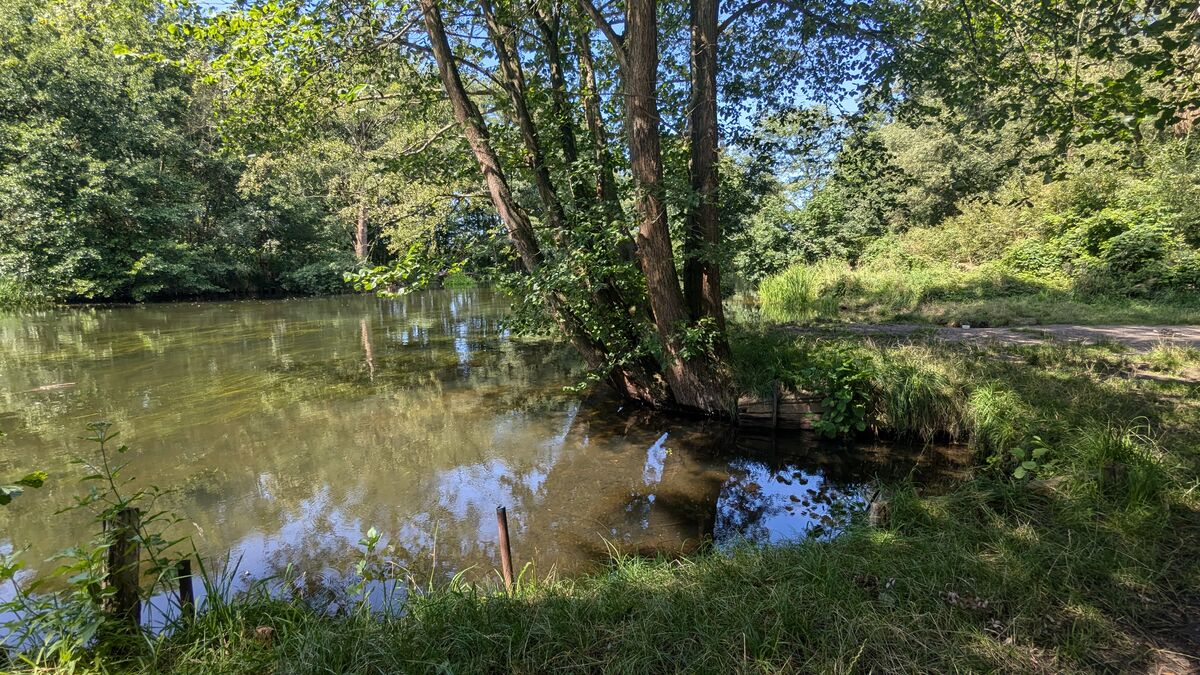
Read also
The best spots in waters for fishing and how to achieve the biggest catch – Where are the best spots in waters to catch fish? 80% of the fish are found in only 20% of the water – learn now where these places are.
2. Fishing with a float: Let the fish party begin!
- Perfect for kids - as exciting as a video game, only in real life!
- Aim for roach and co. - they bite faster than you can say "fish"
- Explain how to watch the float - it's like playing detective!
- Practice casting together - it's like Frisbee, only with more technique
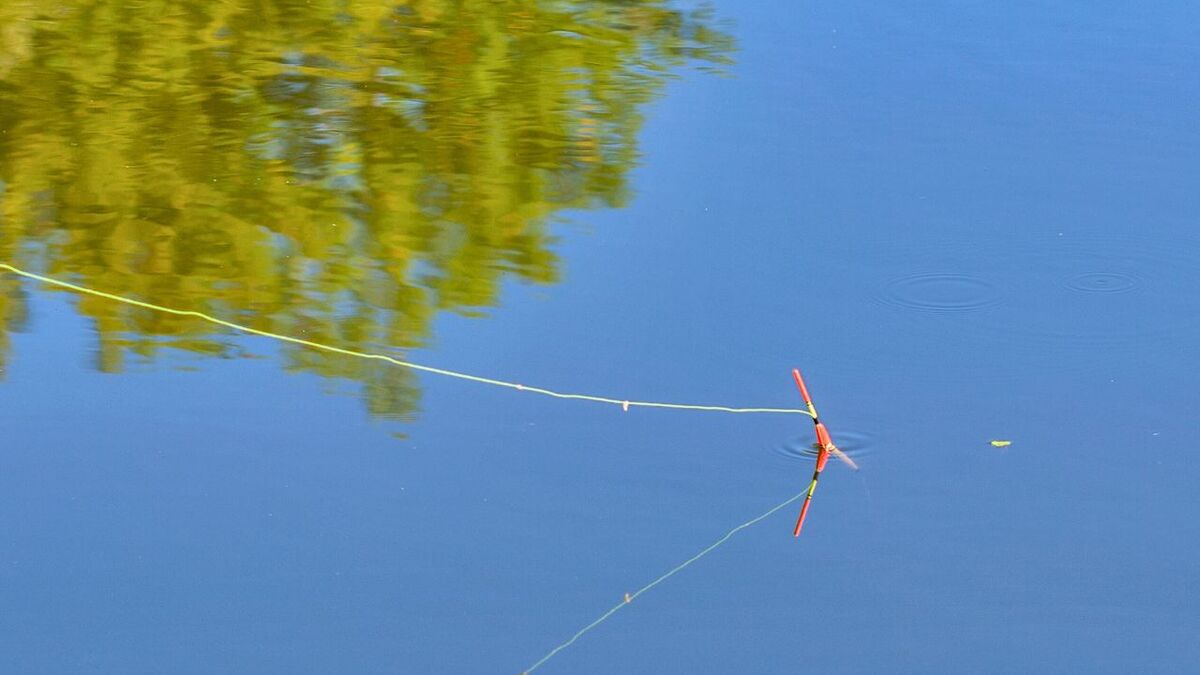
3. Stunning and killing fish: The respectful approach
- Explain to them that the fish does not feel pain after being stunned
- Let them watch and explain each step
- Emphasize how important it is to treat living beings with respect
For this, I recommend the German video on YouTube: Instructions for Heart Stab and Gill Round Cut (humane methods)
4. Gutting and scaling fish: Time for Fish Anatomy 101
- Let them remove the scales - it's like peeling stickers, only slipperier!
- Pro tip: Use an old towel to hold the fish - otherwise, it will turn into a slippery affair
- Explain the innards - Biology has never been so exciting!
- Make a game out of it: Who finds the heart? Who discovers the swim bladder?
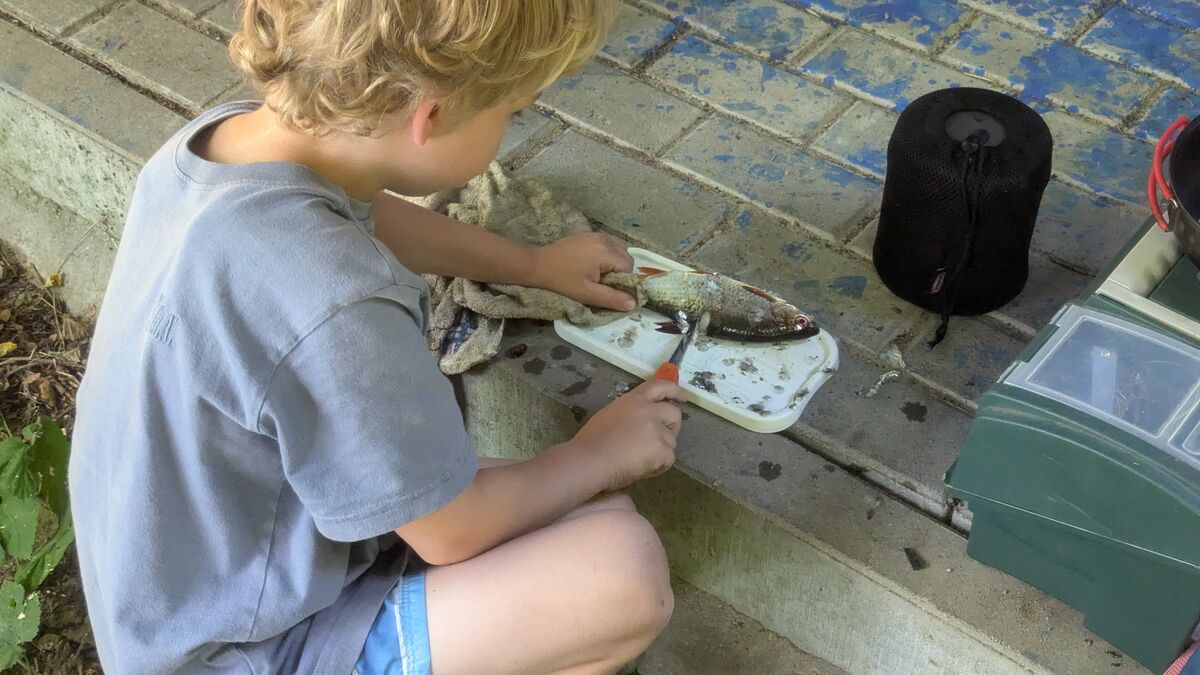
5. Preparation by the Water: Your Wilderness Kitchen
- Turn on the camping stove and off you go!
- Keep it simple: pan, oil, salt - and the feast is ready!
- Let the kids help - they can season or watch the pan
- Tip: Bring rolls - a fish sandwich tastes twice as good in nature!
6. Reflection: Time to philosophize
- Talk about what you have experienced
- Thank the fish, the water, the sun, nature
- Discuss where our food usually comes from - from the supermarket to nature
- Ask the children what they have learned - you will be surprised!
Pro tip for too much seriousness in the air: Turn every step into an adventure! Who can find the funniest fish fin? Who can best mimic fish eyes? Who can invent the craziest story about how the fish came to the lake?
With this plan, you will turn your children into real nature chefs. They will not only learn how to fish and cook but also develop respect for nature and joy in homemade food. Enjoy your meal and have fun discovering.
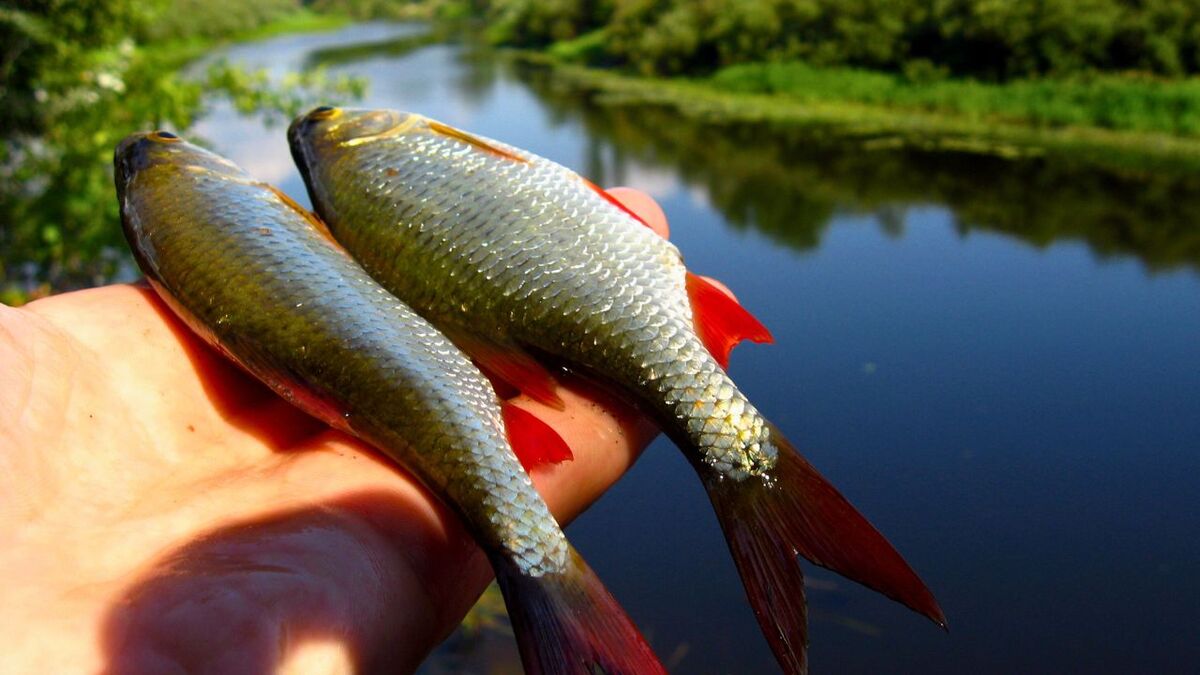
How to Prevent Your Child from Becoming Bait: Safety While Fishing
When fishing with children, safety is essential. Here are my experiences:
- I always keep an eye on my children. But stay cool! You're a supervisor, not a prison guard.
- Life jackets are not a must when your children are standing on the shore. If you're fishing from a boat, they are mandatory! They protect the children and make fishing by the water even more exciting.
- When handling fishing hooks, everyone must be careful. I show the children how to handle and store the hooks properly. Pro tip: Practice casting first with harmless objects.
- You should avoid slippery shore areas to prevent accidents. A first aid kit is always with us.
- By the water, it's a good opportunity to show the children nature. I explain to them what dangers exist. But no panic! It's about respect, not fear.
So, shield activated and fun mode on? Then let's go to the safest fishing adventure of all time!
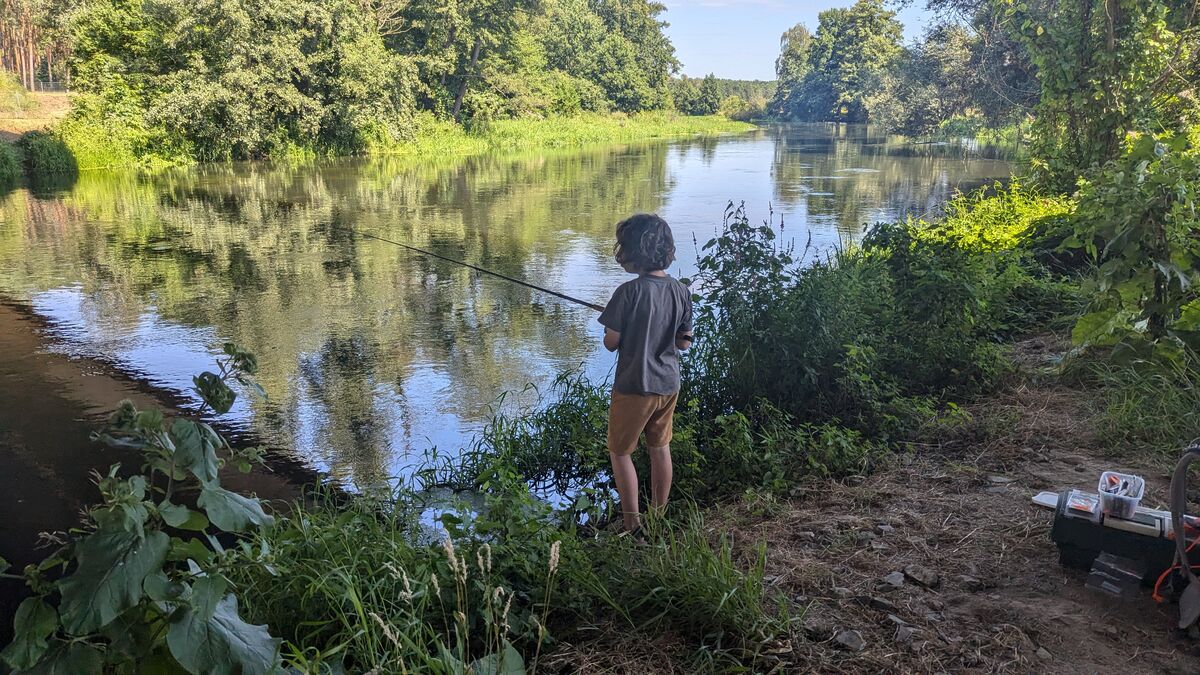
SOS Boredom: Rescue Missions for Bored Mini Anglers
I know this all too well: endless waiting, casting for the hundredth time. When fishing with children, boredom can sometimes set in, especially when the fish aren't biting.
To maintain attention and enthusiasm, it is important to plan complementary activities. Here are a few ideas:
- Short fishing times, interrupted by exciting breaks, keep the children entertained. During these breaks, you can catch and identify water insects with a net (it's like Pokémon Go in real life), which also promotes understanding of the ecosystem.
- Practicing fishing knots with thick ropes improves fine motor skills and prepares the children for more complex fishing techniques.
- A homemade fish species memory game is not only entertaining but also deepens knowledge about different fish species.
- Keeping a fishing diary with drawings and notes stimulates creativity and helps to record experiences.
Secret pro tip: Always have a surprise joker in your pocket - an exciting book, a cool game, or a tasty snack for emergencies!
No fish on the hook? Here's a SOLUTION!
Have you been sitting for hours with your kids by the water and - drum roll - nothing is biting? Do you feel like a comedian without an audience? Don't panic! I've got a few tricks up my sleeve that will help you out.
First, remember that fishing is about the experience, not the catch.
Laugh about the situation – humor is the best bait you can set!
Sprinkle compliments like confetti: "Wow, what a pro throw!" or "You are the best fish whisperer far and wide!" Your kids will shine like a lighthouse.
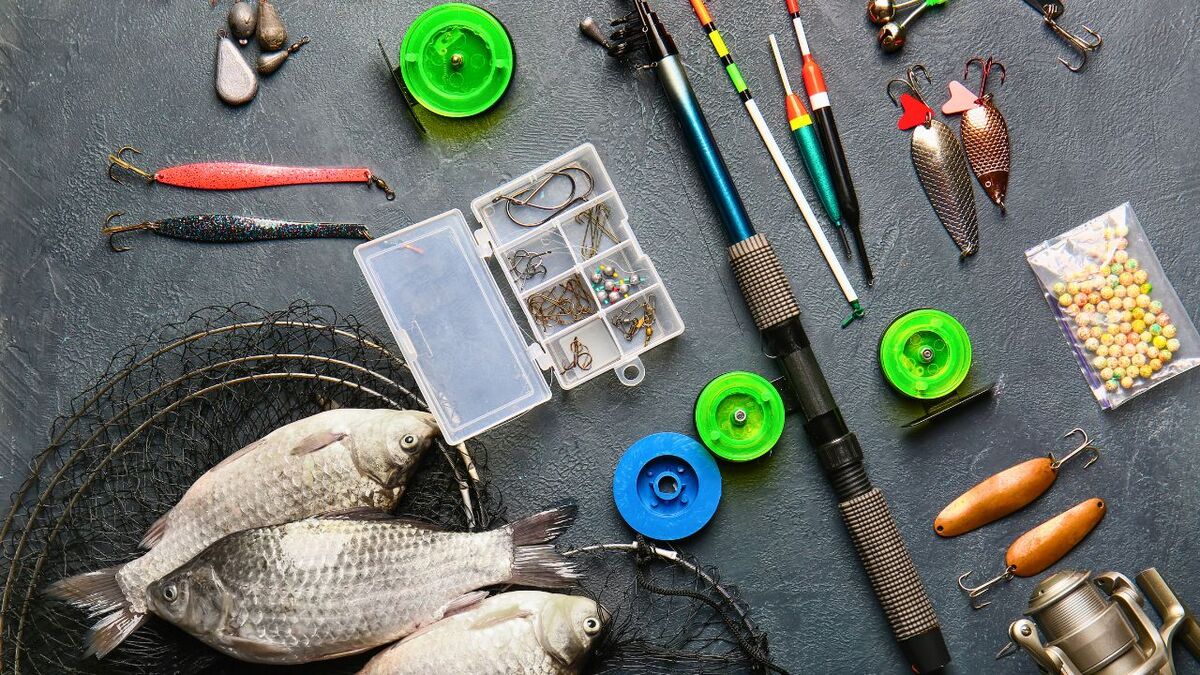
Use the time for mini fishing courses. Practice knots, change baits, or perfect your casting technique. The motto: Today we practice, tomorrow we catch! And if fishing isn't working out right now, become nature detectives. Go on a discovery tour along the shore – who finds the coolest stone or the craziest plant?
Here's another secret comfort tip: Share your own "The-fish-that-got-away" stories. Kids love it when parents also "fail" sometimes!
Remember: A day without fish is like a pizza without cheese - still delicious, just different! With the right attitude, every fishing day is a success, whether or not there's a fin on the hook.
So, ready to turn fish misfortune into gold? With this mindset, you'll become the Zen master of fishing - and your kids will be the most relaxed mini-anglers far and wide!
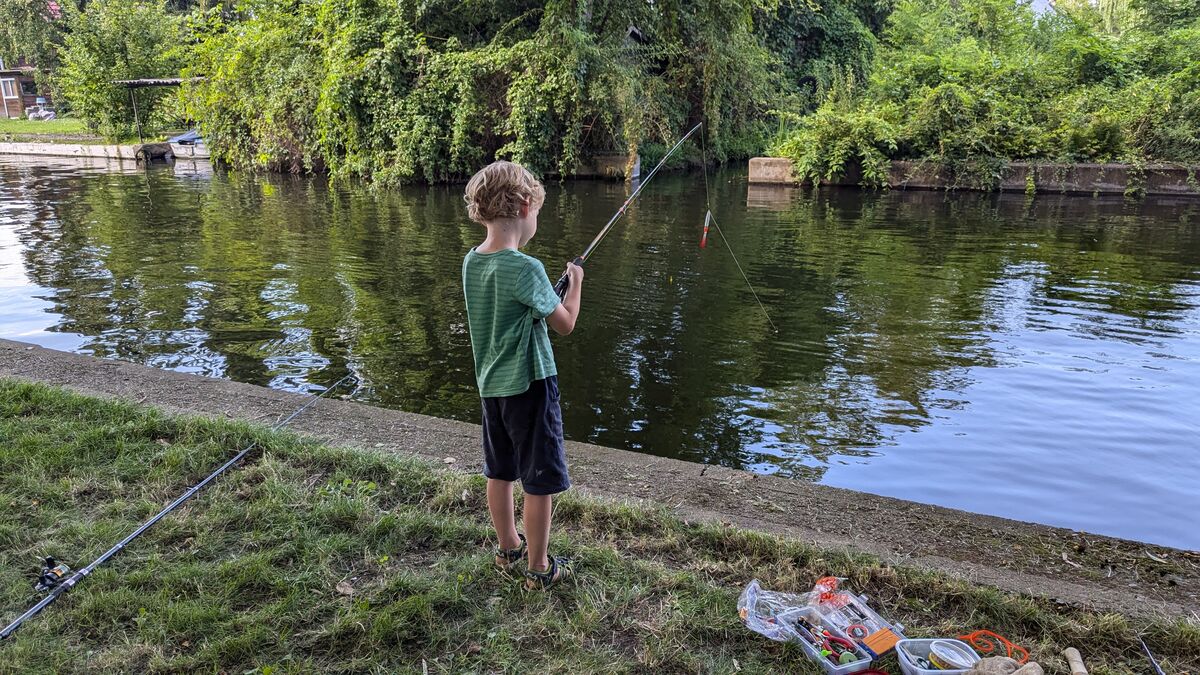
Environmentally Conscious Fishing: How to Teach Your Children Sustainability
Ready to show your kids that fishing is more than just catching fish? Let's talk about green fishing
Do you know what was once the absolute highlight for us? Collecting trash on the shore! Yes, you heard right. It might sound as exciting as math on a Saturday, but just wait.
Make a game out of it: "Who finds the craziest piece of trash?" My kids were thrilled, as if we were searching for pirate treasures!
While you collect, tell them how the trash harms our fish friends and nature. You will be amazed at how attentive they suddenly are. It's like you are explaining the secret codes of the universe to them.
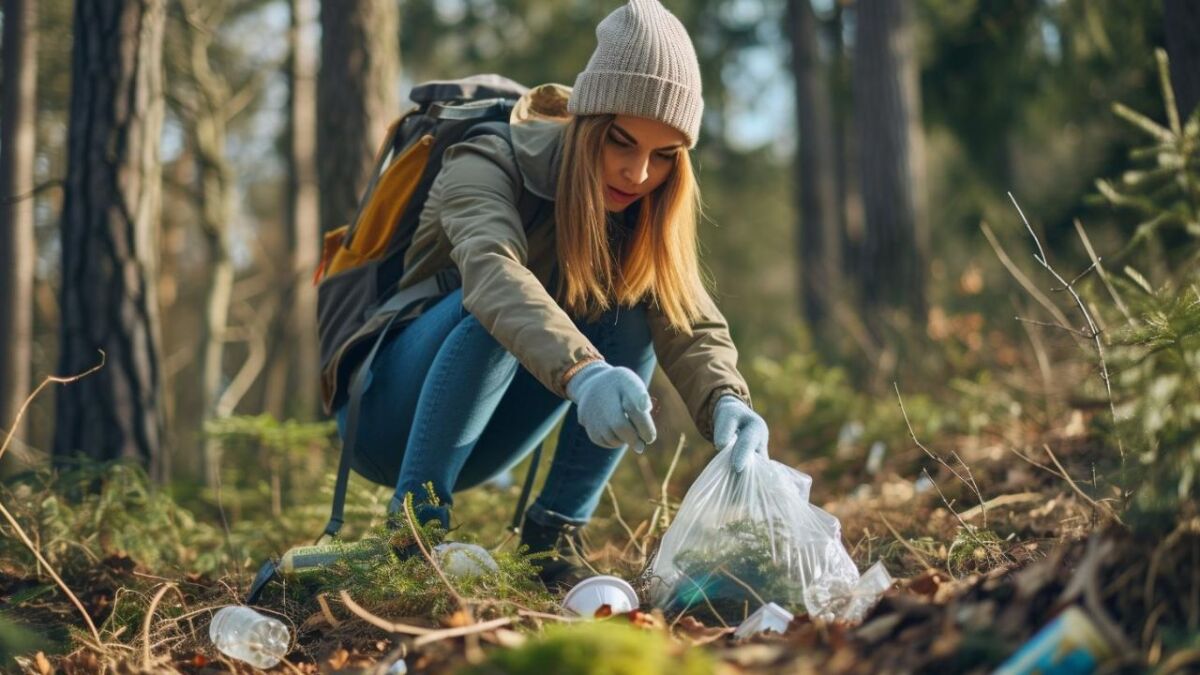
Oh, and do you know about closed seasons and minimum sizes? Sounds dry, I know. But imagine it like rules for a superhero team. Explain to your children why we respect these rules. They will then feel like real fish protectors!
And the catch-and-release? My kids love it! Show them how to gently release fish that are too small.
It's like a "Goodbye, see you next time!" to our scaly friends.
You wouldn't believe how proud they are when they gently let a fish slide into the water.
Don't forget the eco-friendly baits and lead-free weights. They understand that this is how we keep the waters clean. It's like they have their own secret eco-mission.
Believe me, through these small things, your children not only learn how to fish. They develop a real sense of how important it is to take care of our waters and their inhabitants. And the best part? They have more fun doing it than playing computer games!
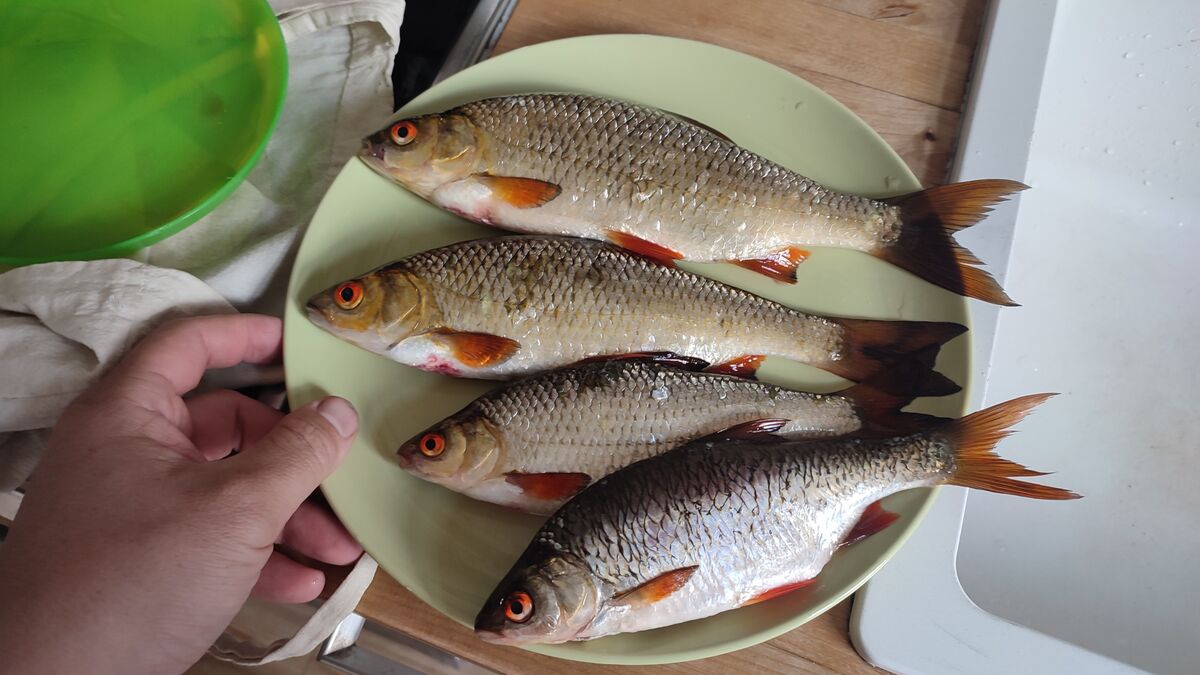
In the past few weeks, I have been on the hunt for the perfect fish with my little fishing crew . And let me tell you, it was anything but boring!
Our first attempt? A true test of patience! Imagine trying to teach an octopus to tie shoes - that's about how it felt.
From the precise casting of the fishing rod (well, precise is relative) to the hours spent staring at the water's surface. My kids were so focused, I thought they had turned into statues!
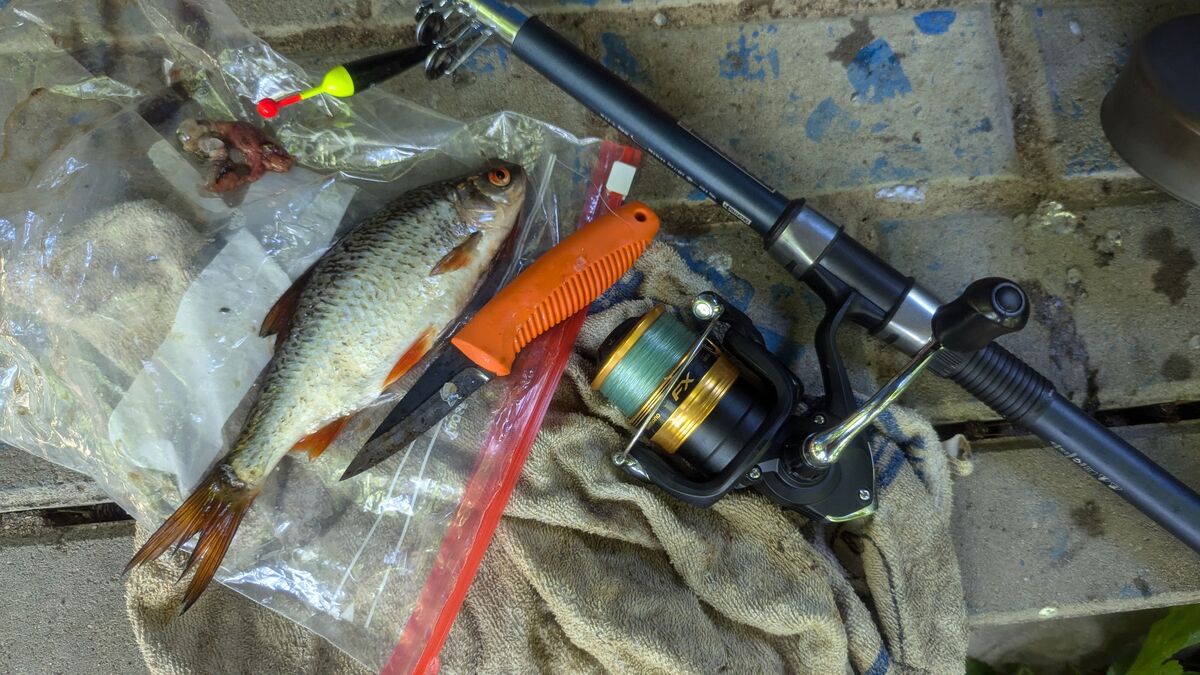
But you know what? Between the waiting, we discovered an entire underwater world. We saw frogs that looked like they were doing yoga, dragonflies performing aerial acrobatics, and aquatic plants that would have amazed even a botanist.
Oh, and then there was the great bait crisis! Suddenly all the worms were gone (I swear, they sneaked away).
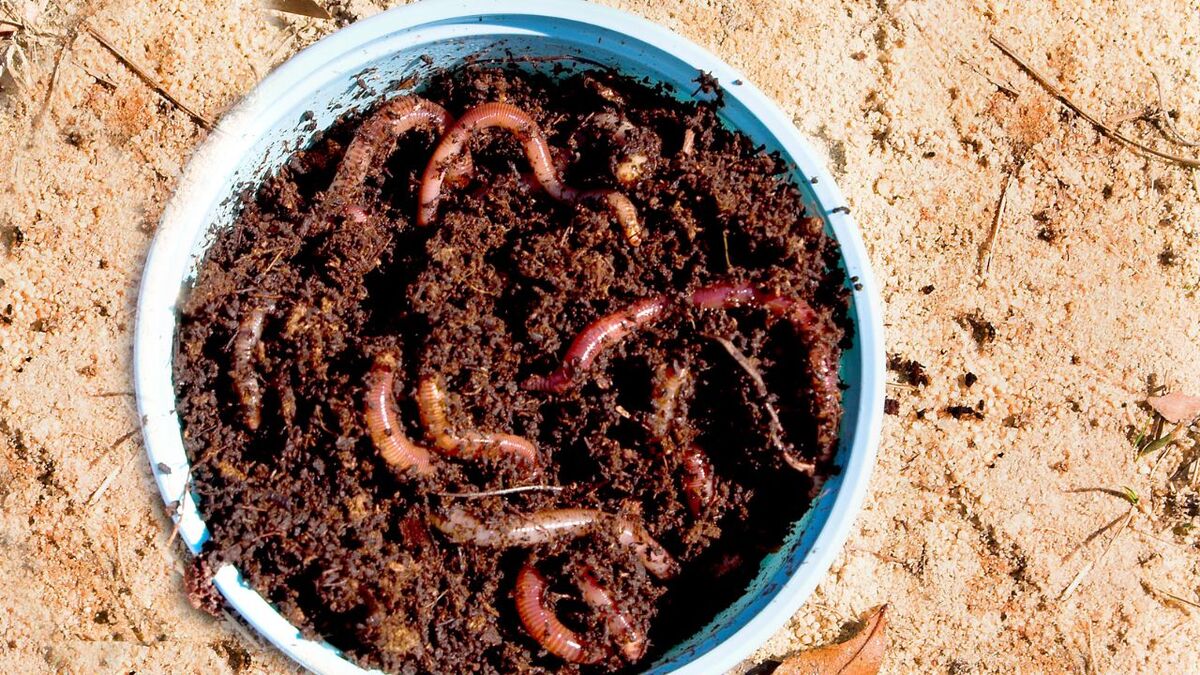
But my little inventors had the solution: homemade bread balls! I'm telling you, kids are more creative than an entire design team.
The highlight? The moment when we finally caught a fish and started gutting it. The faces of my children? Priceless! A mix of "Cool!" and "Eww!" that I will never forget.
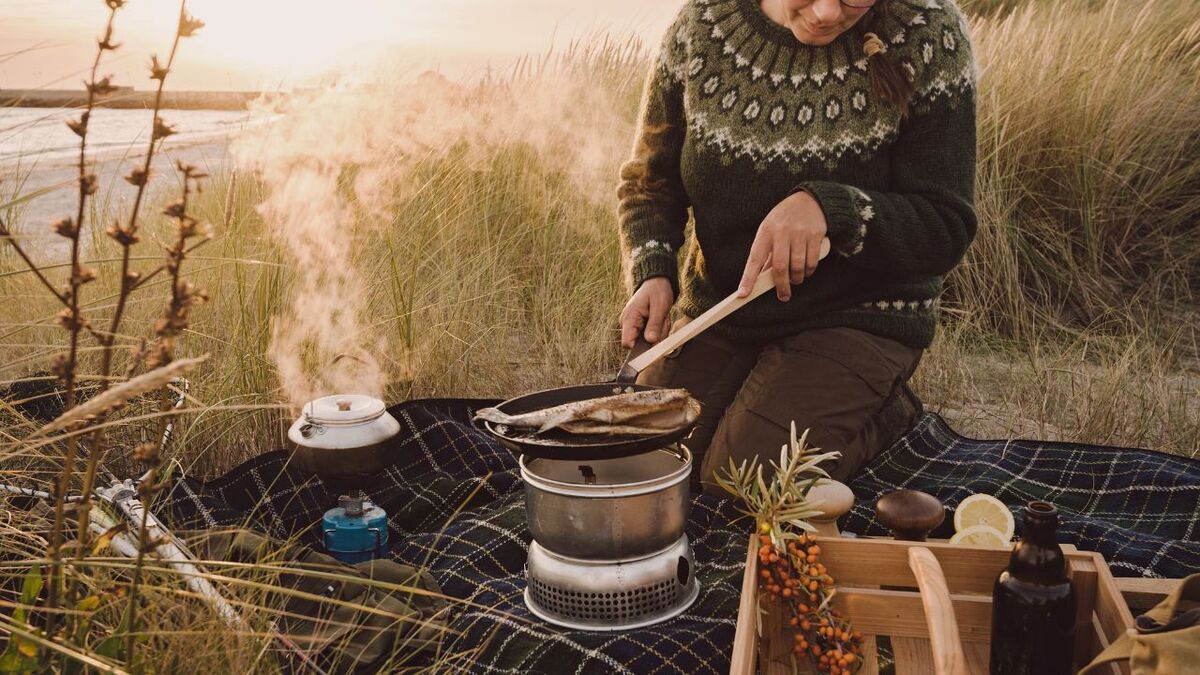
And now, please excuse me, I still need to quickly go to the lake. My children, our fishing rods, and I have a date with a particularly clever carp!

Sources for the guide
https://www.angelschein.de/jugendfischereischein/
https://www.fishing-king.de/angelschein/kinder-jugendliche
https://www.angelschein.de/fischerpruefung/

Author of the guide
Martin Gebhardt
Hey, I'm Martin. On my blog, you will learn the basics and numerous details about living in the wild. I think survival, bushcraft and the good life in nature are the keys to happiness. Find me here on Instagram or on YouTube. You can find more about my mission on the About Me page.
Was this guide helpful?
16 people found this guide helpful.
5.00 out of 5 points (16 Ratings)
Comments (0)
This post may contain affiliate links. So if you click on the links and make a purchase, I will receive a small commission at no additional cost to you. Click here, to learn more about it.


